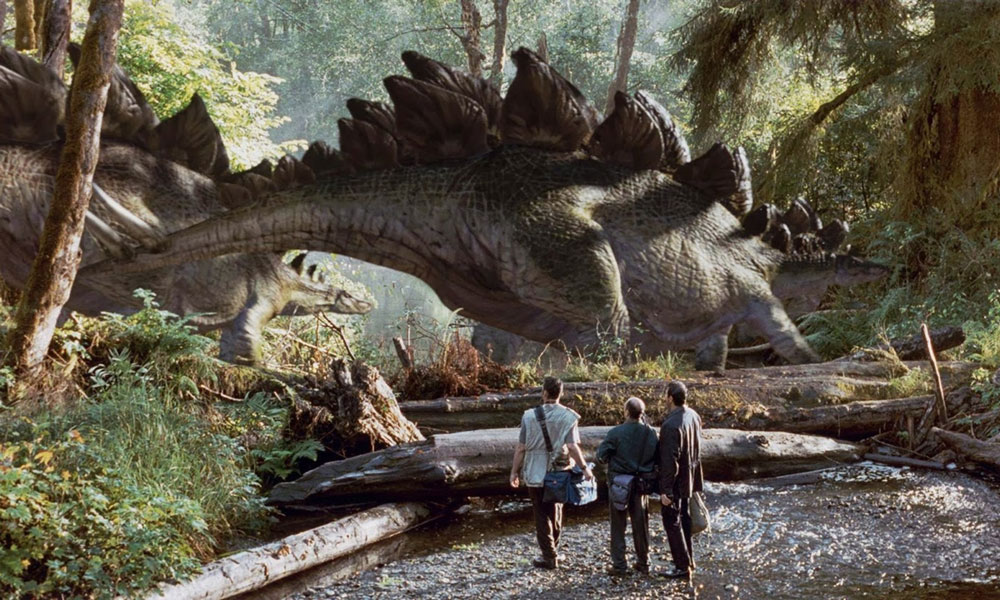
The Paleontological Society Takes a Bite out of Jurassic World
With the fourth film in the ever-popular Jurassic Park franchise now playing in theaters, one paleontologist breaks down the series’ impact—both good and bad—on his field.
With the fourth film in the ever-popular Jurassic Park franchise now playing in theaters, one paleontologist breaks down the series’ impact—both good and bad—on his field.
Let’s talk about dinosaurs for a minute.
The prehistoric creatures are fascinating to both children and adults alike but existed millions of years ago, which means there’s no going to the nearest zoo to experience them up close and personal.
Thankfully, the Jurassic Park movie franchise exists to fill that void. The latest entrant into the series, Jurassic World, hit the theaters last weekend and set global and domestic opening-weekend records, raking in over $520 million at the box office. Meanwhile the film is inspiring a new generation of young dino enthusiasts.
And that’s great news to the Paleontological Society.
“The films have really been a way to raise awareness about paleontology and interest in dinosaurs. Studies of dinosaurs in particular really exploded over the past 20 or so years [when the first film was released],” said Steven M. Holland, the organization’s president.
Holland wasn’t aware of an industry study around the movies’ impact on paleontology, but anecdotally he said that their influence is quite obvious.
“There’s certainly a correlation in that there’s so much more interest now. I notice it when I go to my kids’ school and talk to students about dinosaurs, and they all know about Jurassic Park, and they know about dinosaurs and paleontology,” he said. “Bigger picture, dinosaurs have always been one of the main gateways to paleontology, which may lead kids to go on to study other aspects of paleontology. Bottom line, anything that gets kids interested in this work is a great thing.”
Though the group doesn’t have specific plans to borrow from the film’s success right now, Holland said doing so down the road isn’t out of the question.
“We have an educational outreach group that does a lot with schools and K-12 teachers, and so they have designed programs that were built around the older movies,” he said. “One of our goals as an organization is to increase scientific awareness, so there will definitely be an opportunity for that with Jurassic World as we move forward.”
Any potential educational program built around the movie would also have one main objective: clearing up scientific inaccuracies. In the 20 years since the first movie’s release, paleontologists have learned a great deal about dinosaurs, most of which gets ignored by the movie’s creators, Holland explained.
“That’s actually one of my big beefs and maybe part of the reason that I haven’t gone to see it yet, is that Jurassic World, more so than any of the previous ones, is very inaccurate,” he said. “For example, almost all of the meat-eating dinosaurs that they show in the movie would’ve been covered at least partly in feathers, and some of them—like the raptors—would’ve been covered entirely in feathers. That really changes how you look at these animals.”
Holland isn’t alone in his criticisms of the film. Countless paleontologists have either written or been quoted in various articles in the days since the movie’s release.
Nevertheless, Holland understands that this is Hollywood.
“I’ve seen so many paleontologists in the news, and they come off as curmudgeons, but I really see it [as having] much more of a balance,” he said. “There are issues with the science, but I think it’s absolutely balanced out by the public awareness that the movies bring and the increased interest in paleontology that comes along with it. It’s very much a good thing.”
(Universal Pictures)






Comments